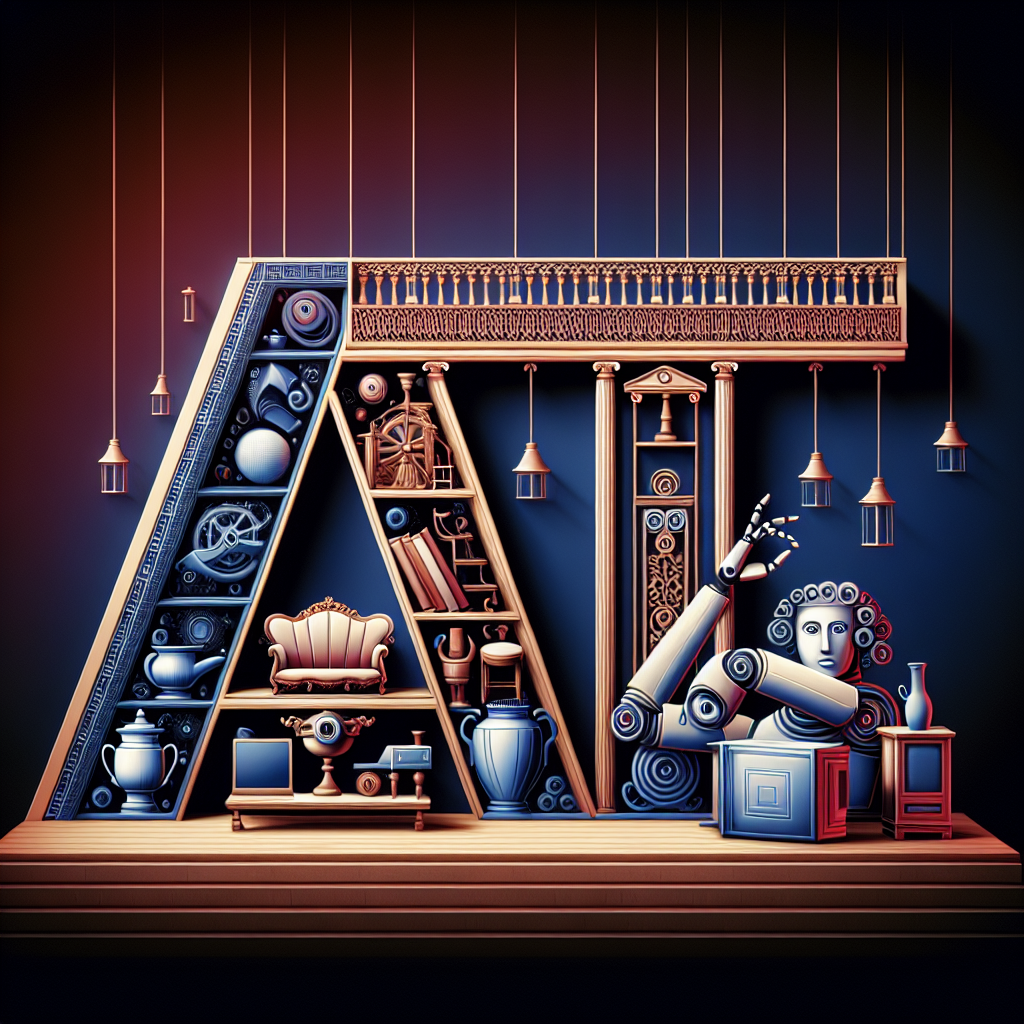Artificial Intelligence (AI) has revolutionized numerous industries, from healthcare to finance to transportation. One area where AI is making a significant impact is in the world of theater production. By harnessing the power of AI, theater professionals can enhance stage designs, create immersive experiences for audiences, and streamline the production process. In this article, we will explore how AI is being utilized in theater production and the benefits it brings to the industry.
Enhancing Stage Designs with AI
One of the key ways in which AI is transforming theater production is through the enhancement of stage designs. Traditionally, stage designers would spend hours creating intricate sets and backdrops by hand. With AI, designers can now use advanced algorithms to generate complex and detailed stage designs in a fraction of the time.
AI can analyze data from past productions, as well as input from designers, to create innovative and visually stunning stage designs. By utilizing machine learning algorithms, AI can also adapt and evolve designs based on feedback from directors, actors, and other production team members.
AI can also be used to create dynamic and interactive stage elements. For example, AI-powered lighting systems can automatically adjust the color, intensity, and direction of lights based on the movements of actors on stage. This creates a more immersive and engaging experience for audiences, as the lighting can change in real-time to enhance the mood and atmosphere of a scene.
In addition to lighting, AI can also be used to create interactive projections and visual effects on stage. By using computer vision technology, AI can track the movements of actors and project images or animations onto the stage in real-time. This allows for seamless integration of digital elements into live performances, blurring the line between the physical and virtual worlds.
Streamlining the Production Process
AI is also revolutionizing the production process in theater. From casting to rehearsals to ticket sales, AI can help streamline every aspect of putting on a show.
In terms of casting, AI can analyze data from auditions and performances to identify talent that may have been overlooked by traditional casting methods. By using machine learning algorithms, AI can match actors with roles that best suit their skills and experience, leading to more diverse and dynamic casts.
AI can also assist in rehearsals by providing real-time feedback to actors and directors. For example, AI-powered voice recognition software can analyze actors’ performances and provide suggestions for improving their delivery or emotional expression. This can help actors fine-tune their performances and create more authentic and engaging characters on stage.
In terms of ticket sales, AI can analyze customer data to predict demand for shows and optimize pricing strategies. By using predictive analytics, theaters can adjust ticket prices in real-time to maximize revenue and ensure that performances are well-attended.
Benefits of AI in Theater Production
There are numerous benefits to incorporating AI into theater production. Some of the key advantages include:
1. Enhanced creativity: AI can help designers and directors push the boundaries of traditional stage design, leading to more innovative and immersive productions.
2. Time and cost savings: By automating tasks such as set design and casting, AI can help theaters save time and money, allowing them to focus on creating high-quality performances.
3. Improved audience engagement: AI-powered lighting, projections, and visual effects can create a more interactive and dynamic experience for audiences, leading to higher levels of engagement and enjoyment.
4. Data-driven decision-making: By analyzing data from past productions and audience feedback, AI can help theaters make more informed decisions about casting, set design, and marketing strategies.
FAQs
Q: Will AI replace human actors in theater productions?
A: While AI can assist in casting and rehearsals, human actors will always be an essential part of live theater. AI is meant to enhance, rather than replace, the creativity and emotional expression that human performers bring to the stage.
Q: How can theaters without large budgets afford AI technology?
A: There are a growing number of affordable AI solutions available for theaters of all sizes. Many AI-powered tools offer flexible pricing plans or can be used on a pay-as-you-go basis, making them accessible to theaters with limited budgets.
Q: Is AI ethical in theater production?
A: As with any technology, it is important to consider the ethical implications of using AI in theater production. It is essential to prioritize transparency, fairness, and inclusivity when implementing AI solutions in the theater industry.
In conclusion, AI is transforming the world of theater production by enhancing stage designs, streamlining the production process, and creating more engaging experiences for audiences. By harnessing the power of AI, theaters can push the boundaries of creativity and innovation, leading to more dynamic and immersive performances. As AI continues to evolve, the possibilities for its application in theater production are endless, and the future of live theater looks brighter than ever.

